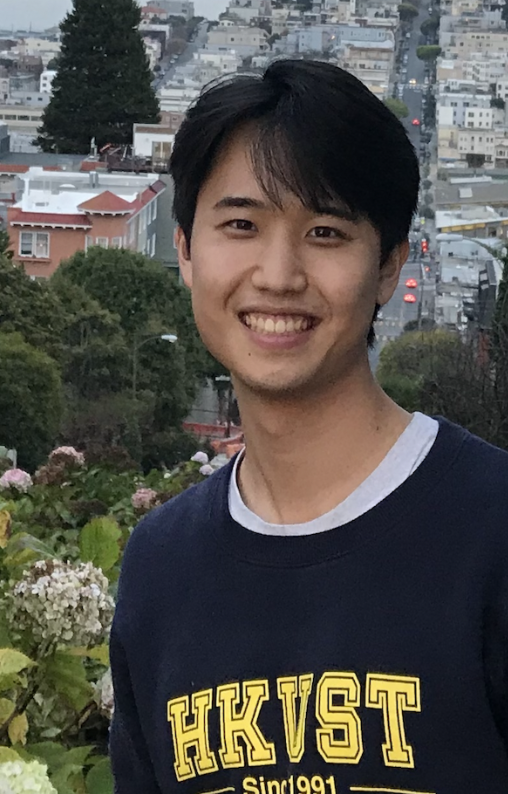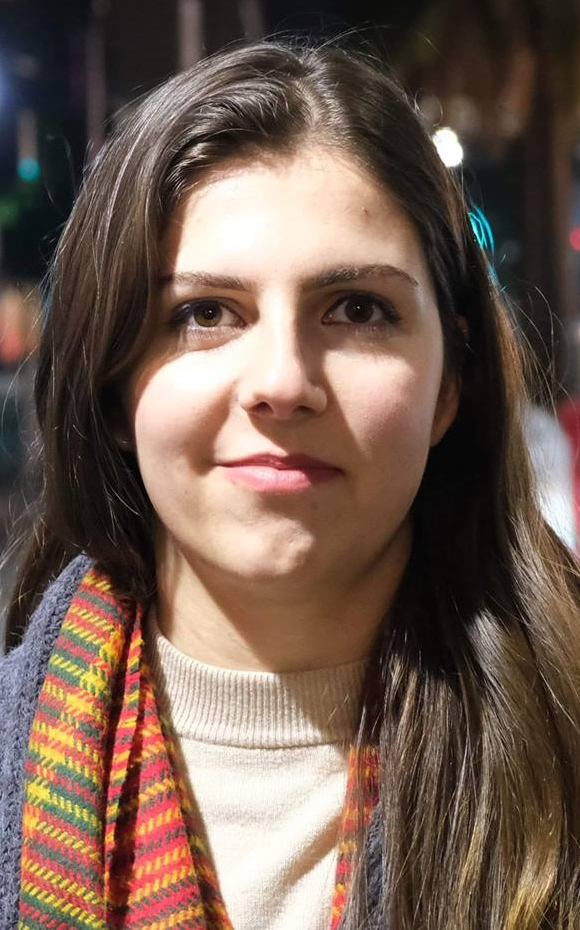CS662
Advanced Natural Language Processing 2023 Archive
Staff
Instructor

Jonathan May
Office Hours: Mondays 12:00-1:00 pm TBD and Wednesdays 9:00–9:50 am TBD, or by appointment (at ISI on other days)
Teaching Assistants


Lectures
Monday and Wednesday 10:00–11:50 am, DMC 261
Textbook
Required: Natural Language Processing - Eisenstein (‘E’ in schedule) – or free version
Required: Speech and Language Processing 3rd edition - Jurafsky, Martin (‘JM’ in schedule) – January 2023 pdf
Required: Selected papers from NLP literature, see (evolving) schedule
Grading
| Percentage | Assessment Component |
|---|---|
| 10% | In class participation |
| 10% | Posted questions before each in-class selected paper presentation and possible quizzes |
| 10% | In-class selected paper presentation |
| 30% | Three Homeworks (10% each) |
| 40% | Project, done in small groups, comprising: |
| - Proposal (5%) | |
| - First version of report (5%) | |
| - In-class presentation (10%) | |
| - Final report (20%). |
- Written homeworks and project components except for final project report must be submitted on the date listed in the schedule, by 23:59:59 AoE.
- Final project report is due Monday, December 11, 2023, 10:00 AM PST
- A deduction of 1/5 of the total possible score will be assessed for each late day. After four late days (i.e. on the fifth), you get a 0 on the assignment (and you should come talk to us because your grade will likely suffer!)
- You have four extension days, to be applied as you wish, throughout the entire class, for homeworks and project proposal / first report (NOT final report). No deduction will be assessed if an extension day is used. As an example, if an assignment is due November 10, you have two extension days remaining, you submit the assignment on November 12, and your score is 90/100. In this case you lose the extension days but your grade is not reduced; it remains 90/100. If you have one extension day, you lose it, and your grade is 70/100. If you have no extension days, your grade is 50/100.
Contact us
On Piazza, Slack, or in class/office hours. Please do not email (unless notified otherwise).
Topics
- (subject to change per instructor/class whim) (will not necessarily be presented in this order):
Linguistic Stack (graphemes/phones - words - syntax - semantics - pragmatics - discourse)
- Tools:
- Corpora, Corpus statistics, Data cleaning and munging
- Annotation and crowdwork
- Evaluation
- Models/approaches: rule-based, automata/grammars, perceptron, logistic regression, neural network models
- Effective written and oral communication
- Components/Tasks/Subtasks:
- Language Models
- Annotation and crowdwork
- Syntax: POS tags, constituency tree, dependency tree, parsing
- Semantics: lexical, formal, inference tasks
- Information Extraction: Named Entities, Relations, Events
- Generation: Machine Translation, Summarization, Dialogue, Creative Generation
- Information Extraction: Named Entities, Relations, Events
Week 1
- Aug 21
- intro, applications
- E 1
- project assignment out (due 9/18)
- paper selection out (due 9/4)
- Aug 23
- data processing. data resources, evaluation, annotation
- E 4.4-4.5, JM 2, 4.7-4.9, Nathan Schneider’s unix notes, Unix for poets, sculpting text
Week 2
- Aug 28
- linear classifiers
- E 2.2, 2.3, 2.4. JM 4, 5, Thumbs up? Sentiment Classification using Machine Learning Techniques, Goldwater probability tutorial. The Perceptron (Rosenblatt 1958) (optional)
- HW1 out (due 9/15)
- Aug 30
- nonlinear classifiers, backprop, gradient descent
- E 3. JM 7.2–7.4, 7.6.
Week 3
- Sep 4
- LABOR DAY NO CLASS
- Paper selection due
- Sep 6
- Sep 8
- Drop deadline (for refund, without W)
Week 4
- Sep 11
- ngram language models, feed forward and recurrent language models
- E 6.1–2, 6.4. 7.5, 7.7. JM 3 Exploring the limits of language modeling
- Sep 13
- NO CLASS
- Sep 15
- HW1 due
Week 5
- Sep 18
- transformer language models
- E 6.3, JM 9, 10. Attention is all you need LM notebook
- project proposal due
- Sep 20
Week 6
- Sep 25
- YOM KIPPUR NO CLASS
- HW2 out (due 10/13)
- Sep 27
- ethics (Guest Lecture by Katy Felkner)
Week 7
- Oct 2
- POS tags, HMMs, treebanks
- E 7.1–7.4, 8.1, JM 8.1–8.5, 17.3
- Katie - Affective Knowledge Enhanced Multiple-Graph Fusion Networks for Aspect-based Sentiment Analysis
- Questions by: Yavuz
- Sean - Reproducibility in Computational Linguistics: Is Source Code Enough?
- Questions by: Tina
- Questions by: Yavuz
- Oct 4
- constituencies, cky
- E 10.1–10.4, JM 17 (the rest)
- Ian - Finding Skill Neurons in Pre-trained Transformer-based Language Models
- Questions by: Deuksin
- Darshan - On the Transformation of Latent Space in Fine-Tuned NLP Models
- Questions by: Shauryasikt
- Questions by: Deuksin
- Oct 6
- Drop deadline (no refund, without W)
Week 8
- Oct 9
- dependencies
- E 11, JM 18
- Sina - Perturbation Augmentation for Fairer NLP
- Questions by: Kian
- Tina - Balancing out Bias: Achieving Fairness Through Balanced Training
- Questions by: Ajay
- Questions by: Kian
- Oct 11
- semantics: logical/compositional, frames and roles, amr, distributional
- E 12.1, 12.2, 13.1, 13.3, 14.1-3, 14.6-8, JM 19, 23, 24
- Nuan - Don’t Prompt, Search! Mining-based Zero-Shot Learning with Language Models
- Questions by: Daniel P
- Yavuz - The Geometry of Multilingual Language Model Representations
- Questions by: Weike
- Questions by: Daniel P
- Oct 13
- HW 2 due
Week 9
- Oct 16
- RLHF (Guest Lecture by Justin Cho)
- RLHF - Chip Huyen
- Oct 18
- machine translation: history, evaluation, data
- “Oh, yes, everything’s right on schedule, Fred”
- Ajay - Transformer Feed-Forward Layers Build Predictions by Promoting Concepts in the Vocabulary Space
- Questions by: Gabriela
- Kate - RANKGEN: Improving Text Generation with Large Ranking Models
- Questions by: Abid
- Questions by: Gabriela
Week 10
- Oct 23
- MEGA (Guest Lecture by Xuezehe Ma)
- Mega Paper; Annotated S4
- Tianyi Y. - Active Example Selection for In-Context Learning
- Questions by: Xinyue
- Daniel Y. - mPLUG: Effective and Efficient Vision-Language Learning by Cross-modal Skip-connections
- Questions by: Duygu
- Questions by: Xinyue
- HW3 out (due 11/17)
- Oct 25
- machine translation: statistical, neural
- E 18, JM 10, 13
- Abid - Calibration Meets Explanation: A Simple and Effective Approach for Model Confidence Estimates
- Questions by: Sean
- Eray - Zero-Shot Text Classification with Self-Training
- Questions by: Ian
- Questions by: Sean
Week 11
- Oct 30
- dialogue: task-oriented and chatbots
- E 19.3, JM 15 The original ELIZA
- Patrick - Towards Multi-Modal Sarcasm Detection via Hierarchical Congruity Modeling with Knowledge Enhancement
- Questions by: Kate Hsu
- David - Stanceosaurus: Classifying Stance Towards Multicultural Misinformation
- Questions by: Shicheng
- Questions by: Kate Hsu
- Nov 1
- dialogue 2
- -n/a-
- Kian - Rethinking the Role of Demonstrations: What Makes In-Context Learning Work?
- Questions by: Priyanka
- Duygu - Learning Robust Representations for Continual Relation Extraction via Adversarial Class Augmentation
- Questions by: Darshan
- Questions by: Priyanka
- Nov 3
- Project Report Version 1 due
Week 12
- Nov 6
- information extraction
- JM 21, E 17, 25 years of IE
- Priyanka - Improving Multi-turn Emotional Support Dialogue Generation with Lookahead Strategy Planning
- Questions by: Zhejian
- Shambhavi - Reflect, Not Reflex: Inference-Based Common Ground Improves Dialogue Response Quality
- Questions by: Eray
- Questions by: Zhejian
- Nov 8
- information extraction 2
- -n/a-
- Brian - ProsocialDialog: A Prosocial Backbone for Conversational Agents
- Questions by: Michael
- Gabriela - Directions for NLP Practices Applied to Online Hate Speech Detection
- Questions by: David
- Questions by: Michael
- Nov 10
- Drop deadline with W
Week 13
- Nov 13
- question answering, information retrieval
- JM 14, RAG
- Michael - Logical Reasoning with Span-Level Predictions for Interpretable and Robust NLI Models
- Questions by: Nuan
- Weike - Learning Instructions with Unlabeled Data for Zero-Shot Cross-Task Generalization
- Questions by: Shambhavi
- Questions by: Nuan
- Nov 15
- natural language inference and common sense tasks
- Modeling Semantic Containment and Exclusion in Natural Language Inference, Commonsense Reasoning and Commonsense Knowledge in Artificial Intelligence
- Shauryasikt - Exploring Dual Encoder Architectures for Question Answering
- Questions by: Katie
- Shicheng - Learning to Generate Question by Asking Question: A Primal-Dual Approach with Uncommon Word Generation
- Questions by: Suhaib
- Questions by: Katie
- Nov 17
- HW 3 due
Week 14
- Nov 20
- prompts, multi task large language models (guest lecture by Qinyuan Ye)
- InstructGPT paper (pp1–20), Large Language Models are Human-Level Prompt Engineers
- Zhejian - Maieutic Prompting: Logically Consistent Reasoning with Recursive Explanations
- Questions by: Patrick
- Yiming - Reasoning Like Program Executors
- Questions by: Daniel Y.
- Zhejian - Maieutic Prompting: Logically Consistent Reasoning with Recursive Explanations
- Nov 22
- THANKSGIVING BREAK; NO CLASS
Week 15
- Nov 27
- Project presentations
- Nov 29
- Project presentations